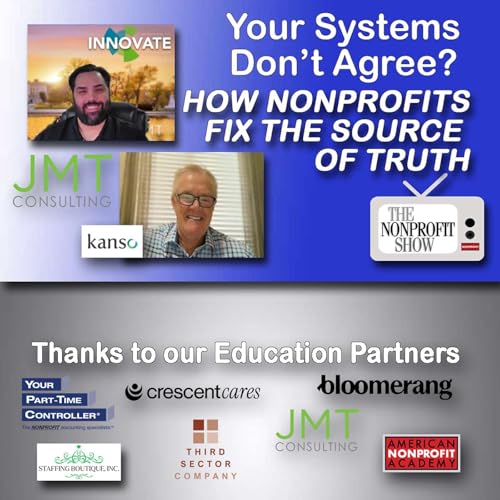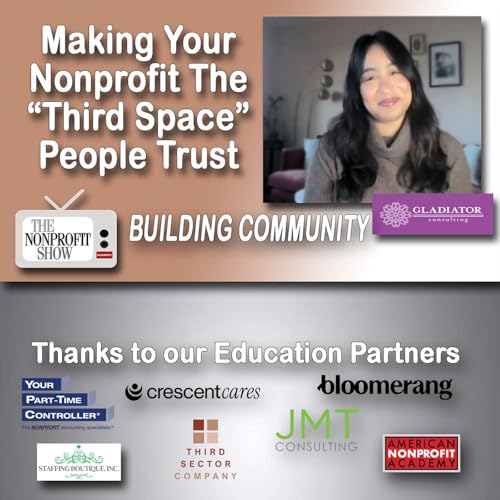A visit with Doug Chapiewsky, CEO & President of Kanso Software, and Cameron Bowman, CAAS Solutions Consultant at JMT Consulting, for a fast-moving, systems-first conversation on one thing every nonprofit runs on: trustworthy data.
Cameron frames the moment we’re in as “the golden age of software”—more tools, more dashboards, more integrations, and more AI than ever before. But that abundance comes with a price: fragmented systems, duplicated entries, and competing versions of the same truth. His fix is refreshingly operational. Data integrity isn’t a buzzword; it’s a checklist: accurate, complete, consistent across systems, timely, and traceable/auditable. When any one of those breaks, nonprofits pay for it in grant compliance headaches, restricted-fund confusion, audit stress, and board decisions made on shaky information.
Doug brings the lens of housing—where data errors don’t just create inconvenience; they disrupt funding, compliance, and real people’s stability. Kanso’s mission is to simplify a highly regulated, high-stakes domain where sensitive data is everywhere and staffing capacity is often thin. As Doug puts it, “Trust outweighs technology… and if we don’t have that trust, it really gets right to your mission.” The episode drills into the reality that single-vendor “one system does it all” is fading fast; modern organizations operate in an ecosystem. That’s why both speakers prioritize open systems paired with serious guardrails—especially when handling social security numbers, income data, and family composition.
The conversation turns tactical with a Business Process Review (BPR): mapping where data originates, how it moves, who owns it, what controls exist, and where manual workarounds (shadow spreadsheets, email approvals, offline tracking) weaken audit trails and invite risk. Cameron lands a line every operations leader should post near their monitor: “Technology will amplify your process. It won’t correct your misaligned workflows.”
Finally, the duo urge nonprofits to build a cadence—monthly, quarterly, at least annually—to revisit processes, configuration, and integrations as funding rules, reporting needs, staff, and tech keep shifting. The message is clear: clean data isn’t a finance luxury—it’s a mission accelerant.
#TheNonprofitShow #NonprofitTechnology #DataIntegrity
Find us Live daily on YouTube!
Find us Live daily on LinkedIn!
Find us Live daily on X: @Nonprofit_Show
Our national co-hosts and amazing guests discuss management, money and missions of nonprofits!
12:30pm ET 11:30am CT 10:30am MT 9:30am PT
Send us your ideas for Show Guests or Topics: HelpDesk@AmericanNonprofitAcademy.com
Visit us on the web:The Nonprofit Show
 28 m
28 m 30 m
30 m 30 m
30 m Feb 18 202629 m
Feb 18 202629 m 31 m
31 m 28 m
28 m 31 m
31 m 29 m
29 m
